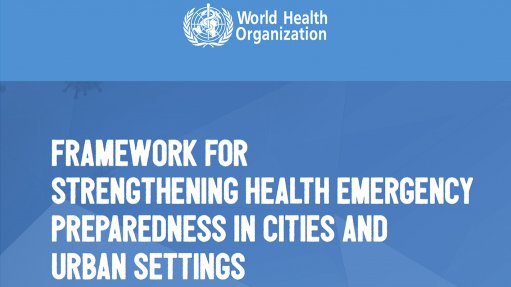
Cities and urban settings are crucial to preventing, preparing for, responding to, and recovering from health emergencies, and therefore enhancing the focus on urban settings is necessary for countries pursuing improved overall health security.
WHO has published the Framework for Strengthening Health Emergency Preparedness in Cities and Urban Settings in order to support policy-makers and decision-makers in the public health sector, as well as other relevant actors and stakeholders across sectors that are engaged in health emergency preparedness in cities and urban settings. In particular, it aims to: a) provide an overview of, and insight into, the key areas that national and subnational authorities may consider focusing on in strengthening health emergency preparedness at the urban level, and b) guide and support the development of policies and capacity building activities at both the national and sub-national level to strengthen health emergency preparedness in cities and urban settings, based on priority risks and existing gaps.
It has been developed as an outcome of the Technical Working Group on Advancing Health Emergency Preparedness in Cities and Urban Settings during COVID-19 and Beyond, co-hosted by WHO and the Government of Singapore in early 2021. It supports the implementation of WHA Resolution 73.8 on Strengthening preparedness for health emergencies: implementation of the International Health Regulations (2005) and builds on both the guidance Strengthening Preparedness for COVID-19 in Cities and Urban Settings: Interim Guidance for Local Authorities, and the associated tool Practical actions in cities to strengthen preparedness for the COVID-19 pandemic and beyond: An interim checklist for local authorities.
Report by the World Health Organization